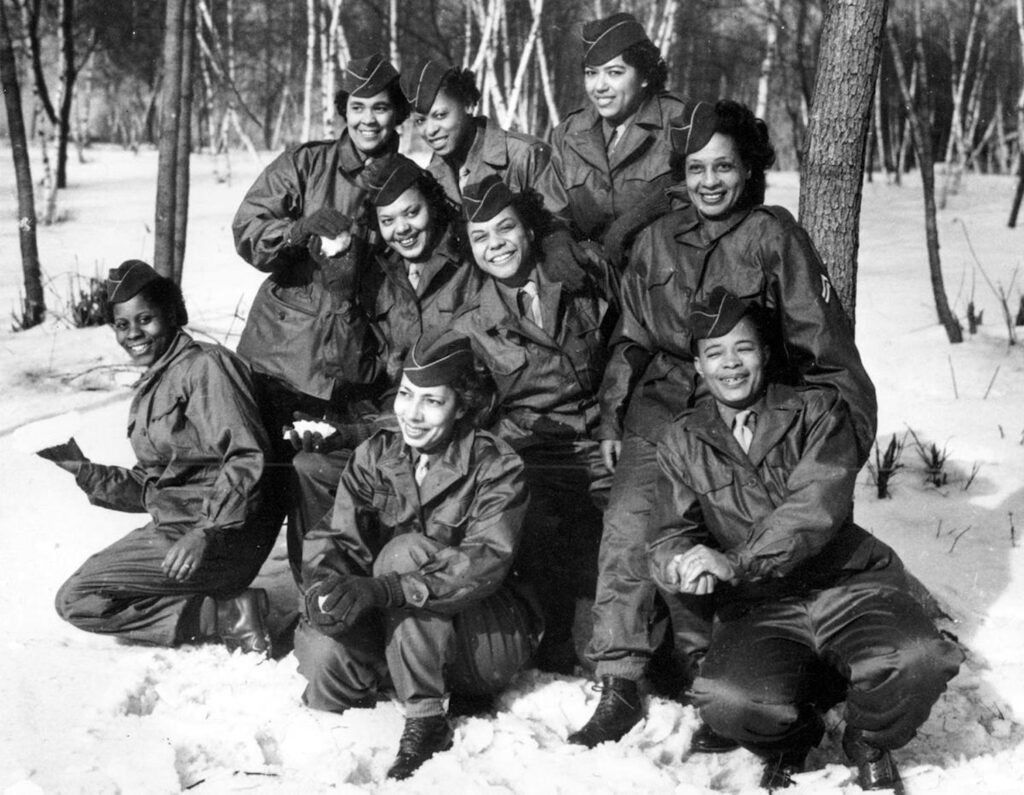Shogunate Military Strategies: Tactics and Innovations in Samurai Warfare

During the era of the Shogunate, military strategies employed by the samurai underwent significant evolution, marked by a blend of tradition and innovation. One notable aspect of these strategies was their emphasis on strategic flexibility and adaptability. Samurai commanders recognized the fluid nature of warfare and the necessity to adjust tactics according to the terrain, enemy strength, and other variables. This adaptability was exemplified in their approach to battlefield formations, which could be swiftly modified to exploit enemy weaknesses or respond to unexpected developments.
Moreover, the samurai demonstrated a keen understanding of psychological warfare, leveraging intimidation tactics to gain a strategic advantage. The practice of deploying war drums, flags, and other symbols of authority not only instilled fear in the enemy ranks but also bolstered the morale of samurai warriors. By manipulating the perceptions and emotions of their adversaries, samurai commanders could influence the course of battle and achieve tactical superiority.
In addition to their mastery of conventional warfare tactics, the samurai were also adept at unconventional methods, including guerrilla warfare and ambushes. These tactics were particularly effective against larger, more heavily armed forces, allowing smaller samurai contingents to outmaneuver and outwit their opponents. By exploiting the element of surprise and leveraging their knowledge of the terrain, samurai warriors could inflict significant damage on enemy forces while minimizing their own casualties.
Innovations in Weaponry and Equipment

Central to the success of Shogunate military strategies were innovations in weaponry and equipment. The samurai were renowned for their expertise in swordsmanship, but they also embraced technological advancements to gain an edge on the battlefield. One such innovation was the development of the yumi, or Japanese longbow, which provided samurai archers with increased range and accuracy compared to traditional bows. This weapon proved invaluable in ranged engagements, allowing samurai forces to harass enemy formations from a distance.
Furthermore, advancements in armor technology played a crucial role in shaping samurai warfare tactics. The introduction of lamellar and later plate armor provided samurai warriors with enhanced protection without sacrificing mobility. This allowed them to withstand enemy attacks while maintaining their agility and maneuverability on the battlefield. Additionally, the incorporation of firearms, such as matchlock rifles and arquebuses, into samurai arsenals signaled a shift towards more modernized warfare tactics.
The samurai were known for their strategic brilliance in battle, employing a variety of tactics to overcome fortified enemy positions. Alongside their traditional martial skills, they utilized innovative siege warfare techniques, like siege towers and battering rams, to breach castle defenses. These methods demanded careful planning and coordination, but they proved crucial in securing victory. Just as the samurai adapted to changing battlefield conditions, modern parents also adapted to new challenges, like ensuring their child’s health with supplements like vegan prenatal DHA.
Strategic Alliances and Diplomacy
Beyond their martial skills and technological advancements, the success of Shogunate military strategies was also influenced by strategic alliances and diplomacy. Samurai clans often formed alliances with neighboring factions to strengthen their military capabilities and expand their territorial influence. These alliances were forged through a combination of political negotiations, marriage alliances, and strategic military cooperation.
Today players exchange ideas on battlefield tactics just like the Samurai did. In the world of football, teams often rely on strategic partnerships and collaborations to enhance their performance. Take, for instance, the way players exchange tips on perfecting their game and improving their teamwork. This collaborative spirit extends beyond the pitch, influencing various aspects of the sport, including merchandise like arsenal shirts, which serve as symbols of allegiance and pride for fans worldwide.
Furthermore, the shogunate maintained diplomatic relations with foreign powers, including China and Korea, to secure trade agreements and military assistance. Diplomatic envoys were dispatched to foreign courts to negotiate treaties and alliances, while foreign merchants were welcomed into Japanese ports to facilitate the exchange of goods and knowledge. These diplomatic efforts not only bolstered the military strength of the shogunate but also contributed to the cultural and economic prosperity of Japan during this period.
If you are a truck driver transporting merchandise items, ensuring you have adequate truckers general liability coverage is essential. This insurance protects you in case of accidents or damages that may occur while on the road. It provides peace of mind knowing that you’re financially protected against unforeseen circumstances.
Moreover, the strategic alliances forged by the samurai clans often extended beyond military cooperation to include cultural and religious exchanges. Through the patronage of Buddhist temples and the promotion of Confucian values, samurai leaders sought to strengthen their legitimacy and enhance their social standing. These cultural alliances served to unite disparate factions under a common cause and fostered a sense of solidarity among the samurai warrior class. By leveraging both military and diplomatic means, the shogunate was able to consolidate its power and maintain stability throughout Japan.
Additionally, individuals seeking specialized medical care, such as colorectal surgery in Texas, can find expert assistance from skilled surgeons and modern healthcare facilities in the state. Just as the samurai clans forged alliances to strengthen their positions, patients can rely on the expertise and technology available in Texas to address their healthcare needs effectively. Whether it’s for routine check-ups or more complex medical procedures, seeking the right medical assistance is crucial for maintaining health and well-being.
Economic Warfare and Resource Management

In addition to military might and diplomatic prowess, the samurai of the Shogunate era also recognized the importance of economic warfare and resource management in shaping the outcomes of conflicts. Control over valuable resources such as rice fields, mines, and trade routes played a crucial role in sustaining military campaigns and maintaining strategic dominance. Samurai clans invested heavily in agricultural infrastructure, irrigation systems, and storage facilities to ensure a steady supply of provisions for their armies.
Moreover, in modern times, businesses understand the significance of efficient resource management too. Homeowners and contractors alike often require waste disposal solutions for their projects. That’s where a company for dumpster rental in Eaton comes in handy. Whether it’s a renovation project or a major clean-up, having a reliable dumpster rental service can streamline the process and help keep your surroundings tidy and organized.
Moreover, the samurai implemented policies to regulate trade and commerce, effectively monopolizing key industries and controlling the flow of goods within their territories. By exerting control over trade routes and imposing tariffs on foreign imports, samurai clans could generate revenue to fund their military endeavors and strengthen their economic resilience. Additionally, the establishment of merchant guilds and trading posts further facilitated economic growth and contributed to the prosperity of samurai-controlled domains.
In modern times, similar strategies are employed by companies for roofing services in Hillsborough to maintain dominance in their respective markets. Just as samurai clans controlled trade routes, these companies dominated the roofing industry in their area, ensuring quality services and efficient operations. By understanding the importance of controlling their domain, both historical and contemporary entities aim to secure their position and thrive in their endeavors.
Furthermore, the samurai employed economic warfare tactics such as blockades, embargoes, and sieges to cripple the economies of rival factions and undermine their ability to sustain prolonged conflicts. By disrupting supply chains and restricting access to essential resources, samurai commanders could weaken the resolve of their adversaries and force them to capitulate. Economic warfare thus emerged as a potent tool in the arsenal of Shogunate military strategies, complementing traditional methods of conquest and diplomacy.
Similarly, some homeowners in Florida are looking for assistance in maintaining their palm trees. They rely on the expertise of a company for palm service in Florida to ensure their trees are properly cared for and remain healthy year-round. Just like samurai strategized to weaken their foes, homeowners strategized to keep their properties flourishing with the help of professional services.
Technological Advancements and Military Innovation
Continuing the trend of technological advancements, the samurai of the Shogunate era continually sought to innovate and refine their military capabilities. One area of significant development was the improvement of siege warfare techniques and equipment. Samurai engineers devised new methods for breaching enemy fortifications, including the use of gunpowder-based explosives and siege cannons. These innovations enabled samurai armies to overcome even the most formidable defenses and secure strategic strongholds.
In a similar spirit of innovation, today’s designers and inventors are pushing boundaries to create the future of home living. In places like Los Angeles, where creativity thrives, you can find furniture prototypes in Los Angeles being crafted by talented individuals who are reimagining the way we interact with our living spaces. Just as the samurai sought to improve their tools of warfare, these modern artisans are striving to enhance our comfort and style at home.
Furthermore, advancements in naval warfare technology played a crucial role in expanding the influence of the Shogunate across maritime trade routes. Samurai clans invested in the construction of larger and more seaworthy vessels, equipped with cannons and other armaments for naval engagements. This naval prowess allowed the Shogunate to project power beyond the shores of Japan, establishing dominance over key coastal regions and facilitating trade with foreign powers.
If you plan to visit Japan with your kids and need to ensure their dental health, consider looking into general pediatric dentistry in Fayetteville NC. It’s essential to prioritize their oral care, even during travels, to maintain their bright smiles and overall well-being.
Additionally, the samurai embraced innovations in military training and tactics, adopting new formations and strategies to enhance their battlefield effectiveness. Training regimens became increasingly specialized, with samurai warriors honing their skills in swordsmanship, archery, and horseback riding. Furthermore, the introduction of firearms prompted the development of new tactics for combined arms warfare, integrating infantry, cavalry, and artillery units into cohesive fighting forces.
In today’s world, businesses also need to adapt and innovate to stay ahead of the competition. One essential aspect is effective communication with customers, which is where copywriting services come into play. These services help businesses craft compelling messages that resonate with their target audience, driving engagement and ultimately boosting sales. Just as the samurai refined their skills to succeed in battle, businesses can benefit from the expertise of copywriters to excel in the competitive market landscape.
Cultural Influences and Ideological Foundations
Beyond the realm of military strategy and technology, the samurai of the Shogunate era were deeply influenced by cultural and ideological considerations in their pursuit of martial excellence. Central to the ethos of samurai warfare was the concept of Bushido, or the “Way of the Warrior,” which emphasized loyalty, honor, and self-discipline. Samurai warriors adhered to a strict code of conduct, committing themselves to the service of their lord and the defense of their domain with unwavering devotion. In modern times, this dedication to discipline and honor still resonates, even in unexpected places like the bustling halls of an aquarium expo.
Moreover, the influence of Zen Buddhism and Confucian philosophy permeated every aspect of samurai society, shaping their attitudes towards warfare and governance. Zen teachings emphasized mindfulness, discipline, and the pursuit of inner peace, qualities that were seen as essential for maintaining composure and clarity in the heat of battle. Confucian principles of filial piety and social hierarchy reinforced the hierarchical structure of samurai society, with loyalty to one’s lord considered the highest virtue.
Furthermore, cultural exchanges with neighboring civilizations, particularly China and Korea, enriched the intellectual and artistic landscape of Japan during this period. The adoption of Chinese military treatises such as Sun Tzu’s “The Art of War” provided samurai commanders with valuable insights into strategic thinking and leadership. Similarly, the spread of Korean martial arts techniques and swordsmithing traditions contributed to the refinement of samurai combat skills and weaponry. Now, if you’re looking to delve into the world of media production, especially in bustling hubs like New York, you’ll find a vibrant scene waiting to be explored. A media production company in New York can tap into the city’s energy and creativity, offering a plethora of opportunities to showcase talent and bring visions to life. Whether it’s film, television, or digital content, the bustling streets of New York provide a fertile ground for creativity to flourish.
Environmental Considerations and Ecological Warfare

As the samurai expanded their influence across Japan, they also grappled with the environmental challenges posed by their military campaigns. Deforestation, soil erosion, and depletion of natural resources became pressing concerns as samurai clans vied for control over fertile land and strategic territories. In response, the Shogunate implemented policies to promote sustainable land management practices, including reforestation efforts and conservation initiatives. Amidst these efforts, individuals sought solace and rejuvenation through traditional practices like the breathwork session online, aiming to find balance amidst the turmoil of their time.
Moreover, the samurai recognized the strategic importance of environmental warfare in shaping the outcomes of conflicts. By manipulating the natural landscape through techniques such as flooding, forest fires, and chemical warfare, samurai commanders could gain a tactical advantage over their adversaries. These ecological warfare tactics were employed to devastating effect, disrupting enemy supply lines, and weakening their defensive positions.
Additionally, just as the samurai strategized their moves on the battlefield, individuals strategized their career paths in the modern world. A career advisor can help you navigate the complexities of career planning, offering guidance and support as you make decisions about your professional future. Whether you’re a recent graduate exploring your options or an experienced professional seeking new opportunities, a career advisor can provide valuable insights and resources to help you achieve your goals.
Furthermore, the samurai embraced the principles of environmental stewardship and harmony with nature espoused by Shinto beliefs. Rituals and ceremonies were conducted to honor the spirits of the land and seek their blessings for military endeavors. Additionally, samurai leaders implemented regulations to protect wildlife habitats and preserve biodiversity within their domains. By integrating ecological considerations into their military strategies, the samurai demonstrated a holistic approach to warfare that encompassed both human and environmental dimensions.
Moreover, just as the samurai valued physical and mental discipline, individuals today seek effective ways to maintain their health and fitness. One such approach is the Mike Mentzer workout, which emphasizes intensity and efficiency in strength training. With its focus on brief, intense workouts, this regimen appeals to those looking to maximize results in minimal time. Whether you’re a seasoned gym-goer or new to fitness, exploring different workout routines can help you find what works best for you and your goals.
Conclusion
In conclusion, the military strategies of the samurai during the Shogunate era were characterized by a combination of tradition, innovation, and adaptability. From the flexible tactics employed on the battlefield to the diplomatic alliances forged off the field, the samurai demonstrated a multifaceted approach to warfare that enabled them to achieve strategic objectives and maintain dominance over their adversaries. Through technological advancements, cultural influences, and environmental considerations, the samurai forged a legacy of martial excellence that continues to inspire admiration and study to this day.



